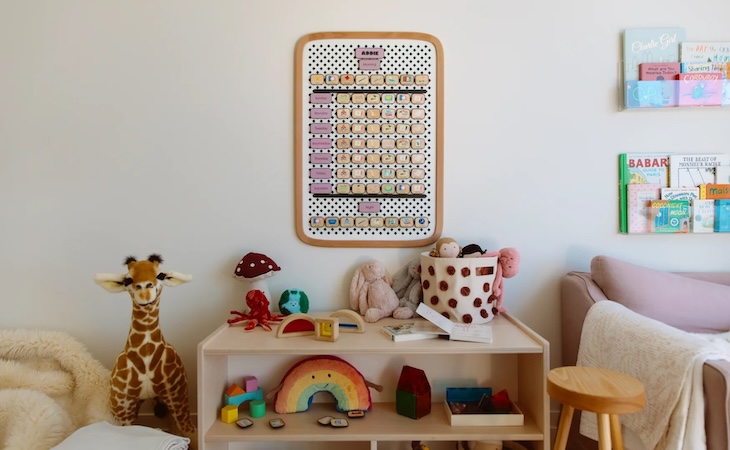A new baby is a huge change and often brings to mind sleepless months thanks to round-the-clock feedings and diaper changes. However, every child differs, and it’s impossible to know if your baby will sleep like the cliché angel or cry to be fed every two hours.
Either way, sleep is one of the most important things for a baby’s growth and development. From the time they’re born and through about three months old, infants need 14 to 17 total hours of sleep a day. From about four months to a year old, infants need 12 to 16 hours of total sleep a day. (Both of these totals include naps.)
To help expecting parents and those with newborns, Saatva chatted with pediatric sleep psychologist Lynelle Schneeberg, PsyD, author of Become Your Child’s Sleep Coach, assistant professor at Yale School of Medicine, director of the behavioral sleep program at Connecticut Children’s Medical Center.
Below, she shares her best baby sleep tips and advice to help new parents get the rest they need.
Q: What’s the most important thing parents should know about babies and sleep?
Sleep organizes into really recognizable stages for babies by the six-month mark. You really don’t want to even try sleep training or coaching until your child is at least six months old. By that time, know that normally developing babies can go all night without feeding—unless feeding has become a sleep association or sleep crutch.
If the last thing you do is nurse and then the baby goes to sleep, when they wake up, they will expect the breast or bottle or rocking chair. The thing you do when they actually fall asleep is what they will want when they wake up. That’s why it’s best to put your baby in the crib somewhat awake. (Learn whether or not it’s safe for a baby to sleep with a pacifier.)
Q: How do you encourage good sleep habits early on in a baby’s life?
I teach people a triangle: eat, play, sleep. If you follow this pattern, you will have a rockstar sleeper. The baby wakes up, you feed them, then you keep them up until they are drowsy. Once they’re drowsy, you put them down without feeding. Then repeat this pattern.
Be consistent because babies start to recognize a routine. And any routine cues the behavior you want. They realize, “Oh, she bathed me, changed my diaper, put on my sleep sack, sang to me, and put me in the crib. She wants me to sleep.”
Q: Are there any particular sleep issues parents should be aware of in the first year of a baby’s life?
Around the four- to six-month mark, sleep gets really organized. This is called sleep regression, but I call it a sleep leap. It’s a positive change for the child. Their sleep gets organized, but it regresses, so to speak, because the baby is more mature. Therefore, they protest more [at bedtime] because they want you to rock them or do whatever bedtime routine you’ve established. This is a good time, if you need it, to seek help with working on independent sleep skills. (Here’s what you need to know about RSV and sleep for babies.)
Q: If your baby has trouble sleeping, when should you call a doctor?
For anything that has to do with breathing—for example, if you notice a pause in their breathing or a blue tint around their lips—call their doctor or 911. Babies can have sleep apnea. (Learn whether weighted sleep sacks are safe for babies.)
Q: What can new parents do to ensure they’re getting the sleep they need to function at their best?
Set up sleep shifts. For example, one person sleeps from 9 p.m. to 3 a.m. Then the other sleeps from 3 a.m. to 9 a.m. During those times, Mom may feed the baby, go to bed, then sleep six hours uninterrupted. When she wakes up, she takes over and Dad sleeps for six hours.
Q: Is there anything parents often worry about when it comes to their newborn’s sleep that they really shouldn’t worry about?
Don’t worry about anything except that the baby has a safe place to sleep. Follow the American Pediatric Association guidelines, and always put a baby on their back.
Prepping your home for a new baby? Here’s how to design a baby nursery that’s both stylish and functional.




